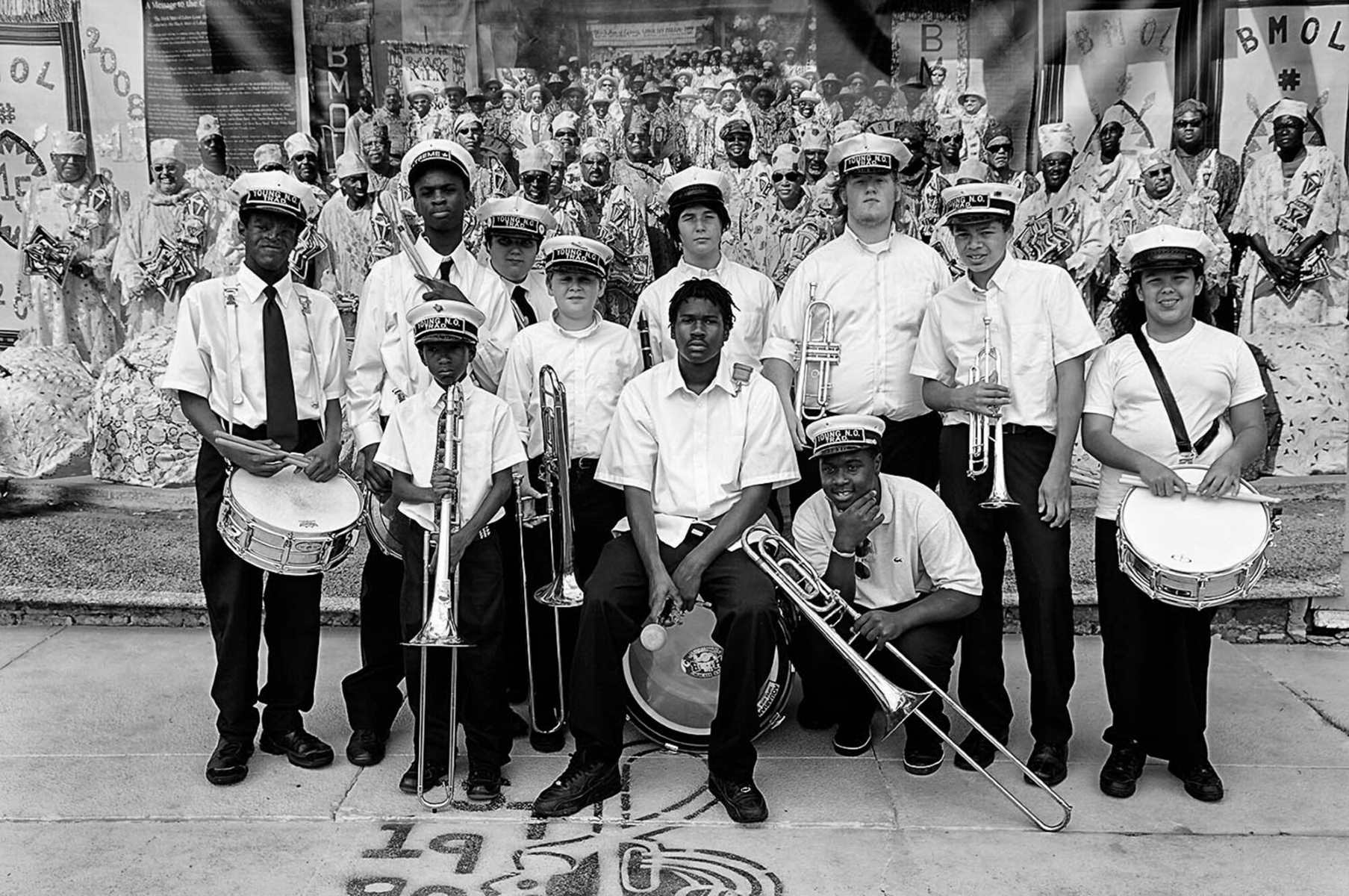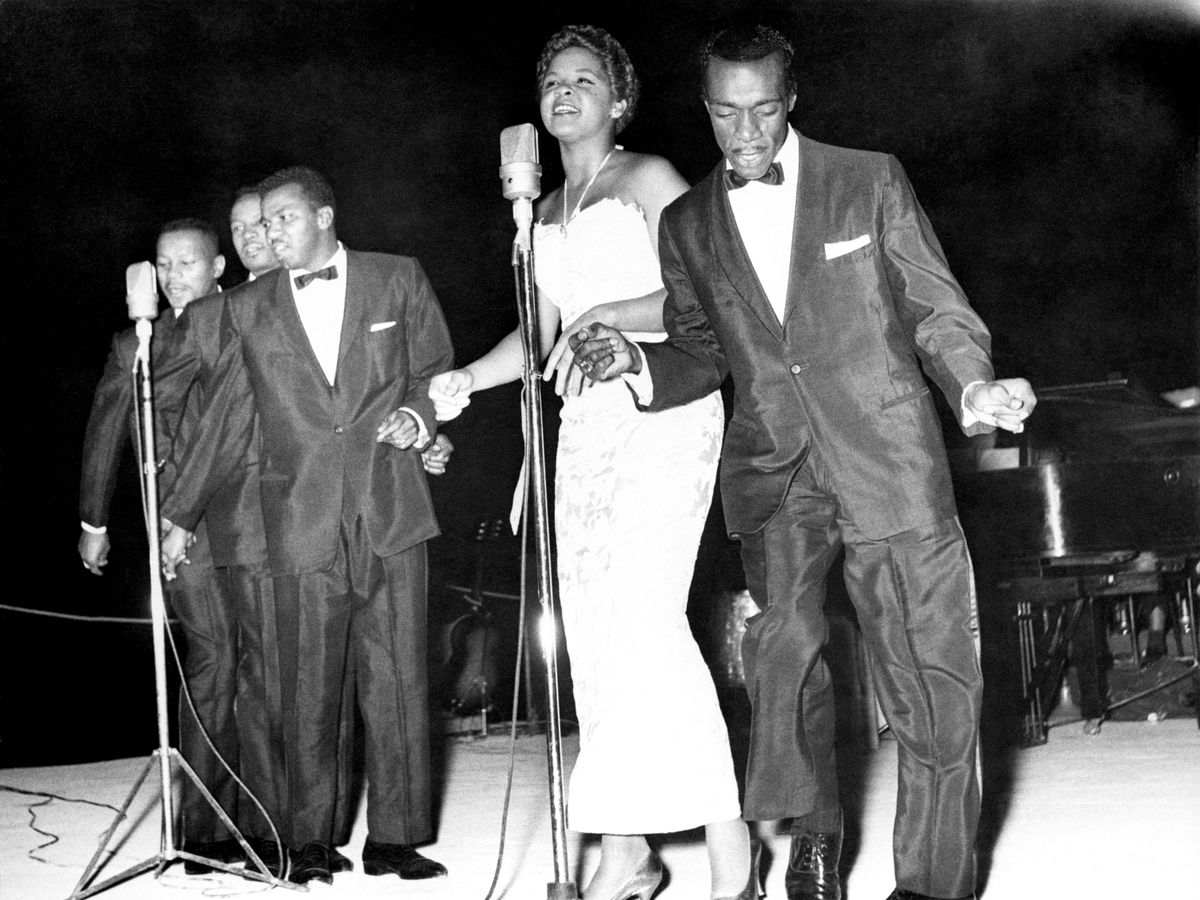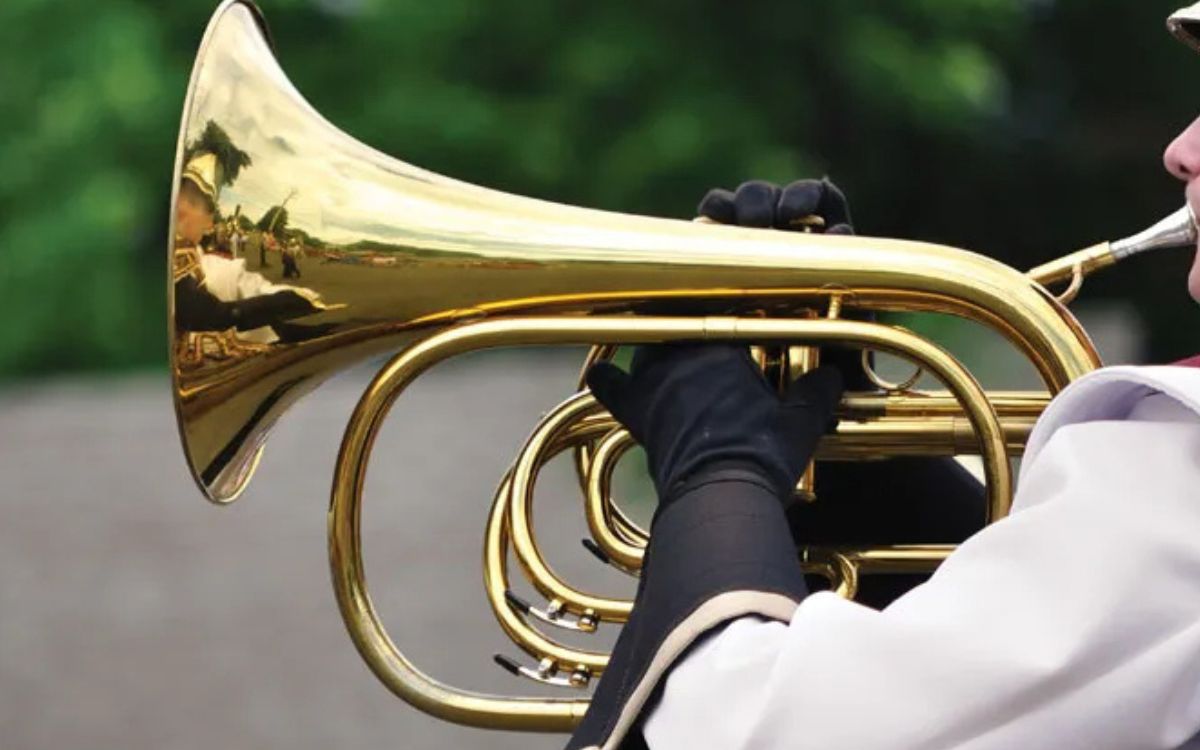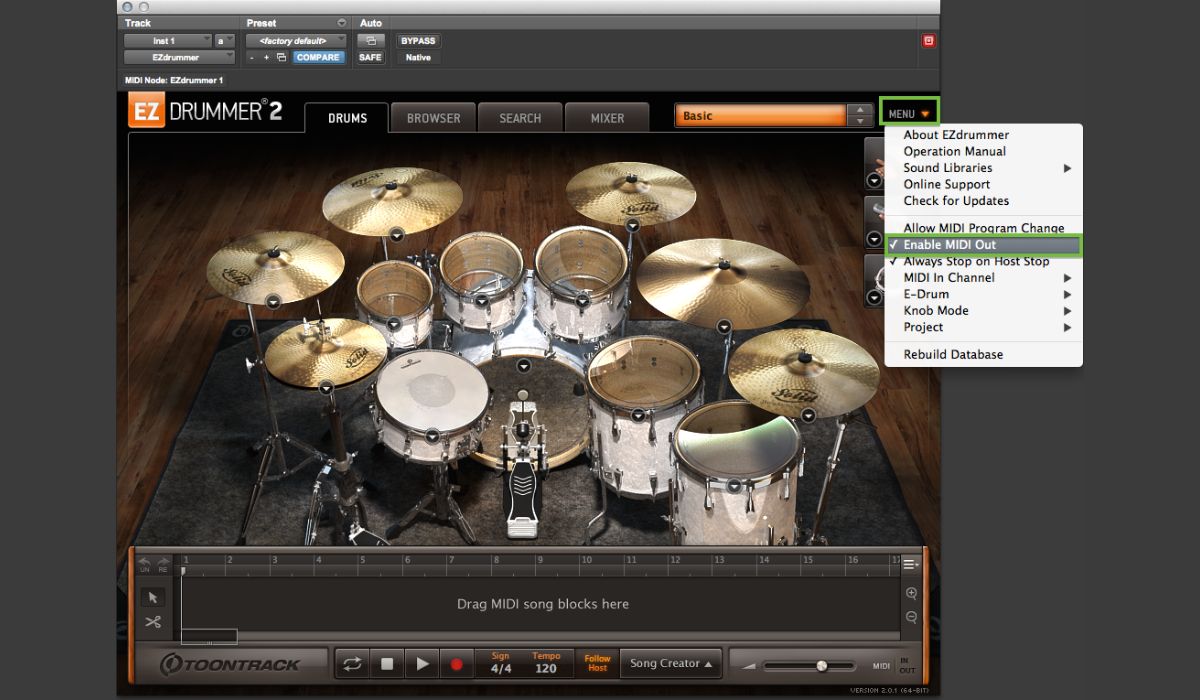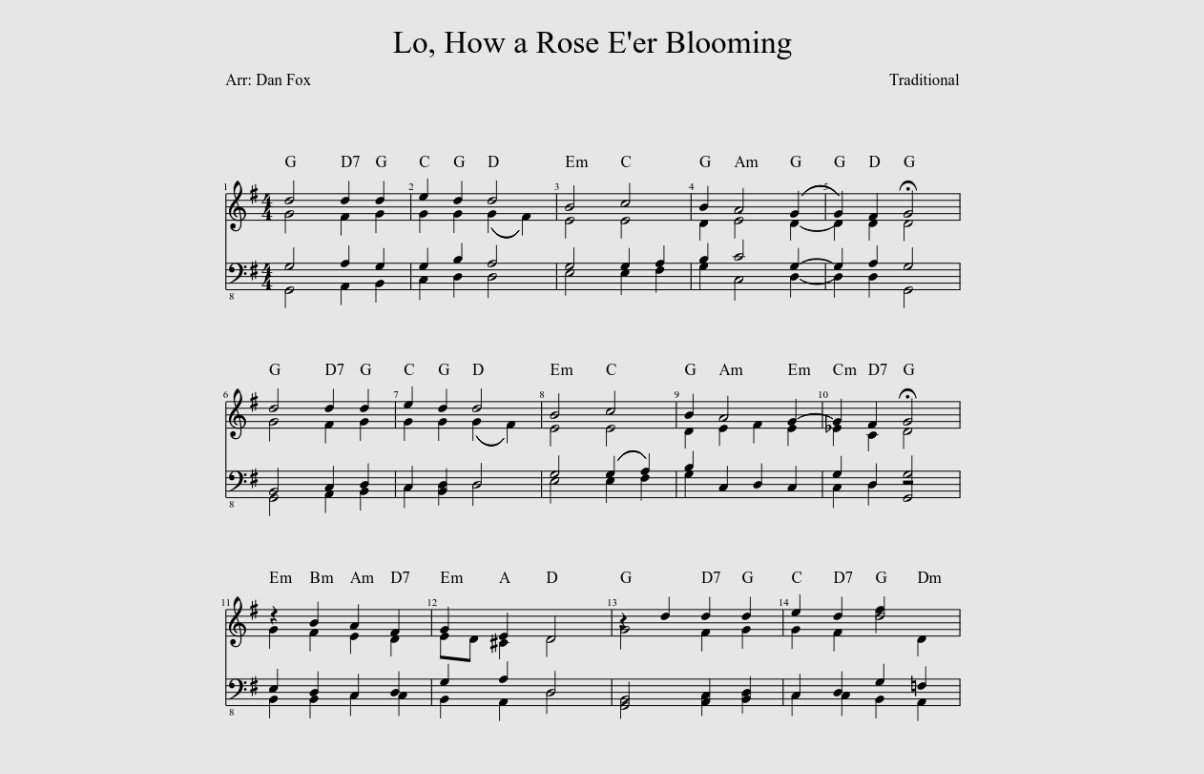Home>Devices & Equipment>Radio>How Did The Radio Affect People’s Lives


Radio
How Did The Radio Affect People’s Lives
Modified: January 22, 2024
Discover how the radio revolutionized society and transformed people's lives, unleashing a new era of entertainment, information, and communication. Embrace the impact of radio on culture, education, and connectivity.
(Many of the links in this article redirect to a specific reviewed product. Your purchase of these products through affiliate links helps to generate commission for AudioLover.com, at no extra cost. Learn more)
Table of Contents
- Introduction
- Early Applications of Radio Technology
- The Emergence of Radio Broadcasting
- Entertainment and Cultural Impact of Radio
- News and Information Revolution
- Advertising and Commercial Influence
- The Social and Political Effects of Radio
- Changes to Communication and Education Systems
- Radio as a Tool for Propaganda and Government Control
- Conclusion
Introduction
The invention of radio has had a profound impact on society, revolutionizing the way people communicate, entertain, and gather information. Radio technology, with its ability to transmit and receive audio signals over long distances, quickly emerged as a groundbreaking communication medium. From its early applications in the late 19th century to the widespread availability of radio broadcasting in the early 20th century, radio became an essential part of people’s lives.
Before the advent of radio, communication was limited to face-to-face interactions, telegraph messages, and print media. The ability to transmit sound through the airwaves brought a new level of connectivity and accessibility, allowing individuals to tune in and listen to audio content from anywhere in the world. This breakthrough in technology brought about a range of changes that impacted various aspects of society.
In this article, we will explore how the radio affected people’s lives, examining its early applications, the emergence of radio broadcasting, its entertainment and cultural impact, the revolution in news and information dissemination, the influence of radio advertising, the social and political effects, changes to communication and education systems, and its use as a tool for propaganda and government control.
By examining these different aspects, we can gain a comprehensive understanding of the profound influence the radio has had on shaping society and how it continues to play a role in the modern world.
Early Applications of Radio Technology
In the late 19th century, inventors like Guglielmo Marconi and Nikola Tesla made significant advancements in radio technology. The ability to wirelessly transmit and receive signals across great distances opened up a world of possibilities, even in its early stages.
One of the primary early applications of radio technology was in maritime communication. Ships at sea could now exchange messages and vital information with coastal stations, improving navigation and safety. This development was of immense importance, as it facilitated quicker and more efficient communication, enabling ships to navigate treacherous waters and receive weather updates in real time.
Furthermore, radio technology had a significant impact on military operations. During World War I, radio communication became indispensable for battlefield coordination, allowing for instant communication between commanders and troops in the field. This technology revolutionized the way wars were fought, greatly enhancing strategic decision-making and enabling swift responses to changing circumstances.
Another early application of radio technology was in amateur radio or ham radio. Enthusiasts set up their own transmitting and receiving stations, engaging in long-distance communication with fellow radio operators around the world. Amateur radio played a vital role in early experimentation and innovation in the field, fostering the growth of radio technology.
Additionally, radio technology found its way into the realm of entertainment. In the early 20th century, radio receivers became more accessible to the general public. People could tune in to broadcasts of music, variety shows, and live performances, captivating listeners and introducing them to a new form of entertainment. The advent of commercial radio broadcasting further expanded access to a wide range of programs, from comedy and drama to news and sports.
These early applications of radio technology set the stage for the rapid development and adoption of this innovative form of communication. It laid the foundation for the widespread use of radio and its subsequent impact on society.
The Emergence of Radio Broadcasting
The early experiments and applications of radio technology paved the way for the emergence of radio broadcasting in the early 20th century. Radio stations began to transmit regular programming, reaching a wide audience and transforming the way people consumed entertainment and information.
The first commercial radio station, KDKA, went on the air in 1920 in Pittsburgh, Pennsylvania. It marked the beginning of a new era in communication, as radio broadcasting quickly gained popularity. Stations began to pop up across the United States and around the world, delivering a variety of content to listeners in their own homes.
Radio broadcasting brought forth a sense of community and shared experiences. Families would gather around their radios to enjoy music, live performances, and serialized dramas. This communal listening experience brought people together, transcending geographical boundaries and creating a sense of connection.
The emergence of radio broadcasting also transformed the music industry. Prior to radio, exposure for musical artists was limited to performances in concert halls or recordings sold in stores. With radio, musicians now had a platform to reach a mass audience. This led to increased record sales, the rise of popular music genres, and the birth of celebrities who became household names.
News dissemination underwent a significant change with the advent of radio broadcasting. Radio stations became a primary source of information, delivering news updates and live reporting to a wide audience. Listeners could stay informed about local, regional, and international events, fostering a sense of immediacy in receiving news updates.
The popularity of radio broadcasting also led to the creation of radio networks. Networks connected multiple stations, allowing for the simulcast of programs, sharing of resources, and nationwide coverage. This development further expanded the reach and influence of radio, solidifying its position as a dominant mass media platform.
The emergence of radio broadcasting had a transformative effect on society, shaping popular culture, connecting people, and revolutionizing the way information was consumed. It laid the foundation for the modern broadcasting industry and set the stage for further advancements in communication technology.
Entertainment and Cultural Impact of Radio
The advent of radio had a profound impact on entertainment and popular culture, revolutionizing the way people consumed media and shaping the cultural landscape of the 20th century.
Radio brought an unprecedented level of access to music, allowing listeners to tune in to a wide range of genres and artists from the comfort of their homes. It played a crucial role in introducing new musical styles to the masses, exposing listeners to diverse sounds and fostering the growth of popular music movements. Musicians found a new platform to reach larger audiences, and the emergence of radio helped propel the careers of legendary artists.
Radio also played a significant role in live entertainment. It broadcasted live concerts, performances, and sporting events, providing a shared experience for listeners across the globe. Live broadcasts of major events, such as the World Series or presidential inaugurations, brought people together, fostering a sense of collective national or global identity.
Furthermore, radio programming extended beyond just music. Serialized dramas, comedy shows, variety programs, and talk shows became immensely popular, captivating audiences and providing a form of escapism and entertainment. Families would gather around the radio, eagerly anticipating the next episode of their favorite series, making radio a central part of their daily lives.
The cultural impact of radio extended beyond entertainment. It played a crucial role in breaking down barriers and fostering social change. Through radio, traditionally marginalized voices and artists were given a platform to express themselves and reach audiences who may not have had access to their work otherwise. Radio programs also often addressed social and political issues, raising awareness and stimulating conversations among listeners.
In addition to shaping popular culture, radio had a profound influence on language and communication. It introduced new phrases, slang, and expressions into everyday speech, reflecting the cultural trends and influences of the time. Radio personalities became household names, their voices becoming familiar to millions of listeners, and contributing to the development of celebrity culture.
The entertainment and cultural impact of radio cannot be overstated. It transformed the way people consumed media, brought new voices and music to the forefront, and shaped the cultural landscape of the 20th century. Even in the digital age, radio remains a powerful medium for connecting people and shaping popular culture.
News and Information Revolution
The emergence of radio brought about a revolution in the way news and information were disseminated. Prior to radio, news was primarily delivered through newspapers and telegraphs, relying on print media for distribution. However, radio broadcasting changed the game by offering immediate and real-time updates to a broad audience.
Radio stations became a vital source of news, providing listeners with the latest information on local, national, and international events. News segments, updates, and live reporting became a staple of radio programming, delivering news directly to people’s homes and workplaces. This immediacy fundamentally transformed the way people consumed news, eliminating the delays associated with print media.
Radio’s ability to broadcast news in real time brought a new level of connectivity and awareness to the masses. Listeners could tune in at any time and receive up-to-the-minute reports, keeping them informed about important events as they unfolded. This instantaneous access to news allowed for a better understanding of current affairs and promoted a sense of being part of a larger global community.
The influence of radio on news dissemination extended beyond immediate updates. It also opened avenues for more in-depth analysis and discussion of current events. Talk shows, panel discussions, and interviews provided a platform for experts and commentators to share their insights and opinions on a wide range of topics. This allowed for a broader understanding and interpretation of news, as well as promoting critical thinking among listeners.
Additionally, radio played a significant role in democratizing access to information. Unlike print media, radio broadcasting required only a receiver, making it more accessible to a broader audience, including those who were illiterate or had limited access to print publications. This democratization of information helped bridge the gap between different socioeconomic groups and fostered a more informed and engaged society.
The news and information revolution brought about by radio had far-reaching effects. It not only transformed the way news was delivered but also impacted the public’s perception of current events, promoted a sense of global awareness, and contributed to the growth of a more informed citizenry.
Advertising and Commercial Influence
With the rise of radio broadcasting, advertising became an integral part of the medium, leading to a significant commercial influence on the radio industry and society as a whole. Radio provided businesses with a new and powerful platform to reach a mass audience and promote their products or services.
Commercial radio stations relied heavily on advertising revenue to sustain their operations and deliver free programming to listeners. Advertisers recognized the potential of radio to reach a wide and captive audience, leading to the development of innovative advertising strategies specifically tailored for radio broadcasts.
Radio commercials became a prevalent and effective means to promote products and create brand awareness. Advertisers utilized jingles, catchy slogans, and memorable storytelling techniques to capture listeners’ attention and leave a lasting impression. Radio personalities often became brand ambassadors, endorsing products and services during live broadcasts, further cementing the commercial influence of radio.
The commercialization of radio had a significant impact on programming content as well. In order to attract advertisers, radio stations needed to offer programming that would appeal to a large audience and keep them engaged. This led to the development of popular genres such as music, variety shows, and talk shows that were designed to attract listeners and maximize advertising opportunities.
Radio also played a pivotal role in the growth of the advertising industry as a whole. The increased demand for radio advertising created job opportunities for copywriters, jingle composers, and voice actors, contributing to the expansion of the advertising sector and its creative output.
Moreover, radio advertising influenced consumer behavior and purchasing decisions. The repetitive nature of radio commercials and the intimate connection between listeners and their favorite radio personalities created a sense of familiarity and trust. As a result, listeners were more likely to be influenced by the recommendations and endorsements made through radio advertisements.
While the commercial influence of radio can be seen as a positive for supporting the growth of the industry and providing free programming to listeners, it also raised concerns about the potential manipulation of public opinion and the intrusion of advertising into everyday life. Nevertheless, the influence of commercialization on shaping the radio landscape cannot be ignored.
The Social and Political Effects of Radio
The advent of radio had profound social and political effects, transforming the way information was disseminated, shaping public opinions, and influencing societal norms.
One of the significant social impacts of radio was its ability to connect people across vast distances. Radio broadcasting brought communities together, creating a shared experience and a sense of collective identity. Families would gather around their radios, listening to news broadcasts, entertainment programs, and live events, fostering a sense of unity and solidarity.
Radio also played a critical role in shaping public opinion and influencing social norms. Through radio broadcasts, political leaders, activists, and social movements were able to reach a large audience, espousing their ideas and inspiring collective action. Radio became a powerful tool for political propaganda, allowing governments to disseminate their messages and control the narrative.
Moreover, radio gave voice to marginalized communities and enabled the expression of diverse perspectives. It provided a platform for underrepresented groups, such as women, racial and ethnic minorities, and the LGBTQ+ community, to share their stories and challenge societal norms. This amplification of voices led to social movements and increased awareness of social injustices.
The social effects of radio were not limited to activism and political discourse. It also played a role in shaping cultural values and societal trends. Radio programs introduced new ideas, music styles, and cultural influences, contributing to the formation of collective identities and influencing popular culture. Radio personalities became influential figures, having the power to shape public opinion and set trends.
On the political front, radio became a potent instrument for propagating ideologies and influencing political campaigns. Political leaders, such as Franklin D. Roosevelt and Adolf Hitler, effectively utilized radio to sway public opinion and rally support. Radio speeches had a significant impact on listeners, evoking emotions and shaping the political climate.
However, the political power of radio was not without its controversies. The use of radio for propaganda purposes raised concerns about its potential to manipulate public opinion and influence elections. Governments and authoritarian regimes, recognizing the power of radio, established control over broadcasting to advance their agendas and suppress dissent.
The social and political effects of radio continue to resonate today. While technological advancements and the rise of digital media have altered the media landscape, radio remains a platform for social and political discourse, shaping public opinion and bringing communities together.
Changes to Communication and Education Systems
The emergence of radio brought about significant changes to communication and education systems, revolutionizing the way people connected and learned.
Prior to radio, communication was primarily limited to face-to-face interactions, written letters, and telegraphs. However, radio provided a new means of long-distance communication that was faster and more accessible. Individuals could now transmit and receive audio signals over great distances, allowing for instantaneous communication and bridging the gap between people separated by geographical barriers.
Radio broadcasting also played a crucial role in education. Educational radio programs emerged, delivering educational content to listeners of all ages. From school lessons and instructional programs to cultural and historical broadcasts, radio became an invaluable tool for expanding access to education, especially for individuals in remote areas or without formal schooling opportunities.
Radio programs not only provided educational content but also served as a platform for intellectual discussions and the dissemination of scientific knowledge. Scientists, experts, and scholars had the opportunity to share their discoveries and ideas with a broad audience, fostering a culture of lifelong learning and intellectual curiosity.
In addition to formal education, radio helped spread general knowledge and cultural enrichment. Quiz shows, lectures, and informative segments provided listeners with a wide range of information, encouraging lifelong learning and expanding people’s understanding of the world. Radio’s ability to reach a large audience made it a powerful medium for cultural exchange, introducing different cultures and perspectives to listeners.
Furthermore, radio facilitated the growth of community engagement and social cohesion. Local radio stations served as a platform for community announcements, promoting events, and fostering a sense of belonging. Whether it was a neighborhood gathering or a public service announcement, radio broadcasting brought communities together and strengthened social bonds.
Although the rise of television and the internet has transformed the education and communication landscape, radio remains a valuable medium, particularly in regions with limited access to more modern technology. Community radio stations continue to play a vital role in disseminating information, preserving local culture, and connecting people in remote areas.
The changes brought about by radio in communication and education highlight its enduring impact on society and its ongoing role in facilitating access to information and knowledge.
Radio as a Tool for Propaganda and Government Control
Radio has long been recognized as a powerful tool for propaganda and government control, with its ability to reach wide audiences and shape public opinion. Throughout history, various governments and regimes have utilized radio broadcasting to disseminate their ideologies, manipulate information, and control the narrative.
One of the most notable examples of government-controlled radio propaganda was seen during World War II. Adolf Hitler’s Nazi regime heavily relied on radio to propagate their fascist ideology and spread anti-Semitic propaganda. The state-controlled radio, headed by Joseph Goebbels, disseminated messages of hatred, instilled fear, and sought to gain the loyalty and support of the German population.
Similarly, in Soviet Russia, radio played a significant role in disseminating the ideals of communism and promoting government propaganda. The state-owned radio stations were under strict control of the Communist Party, propagating messages of loyalty to the state, promoting collectivism, and portraying the Soviet government in a positive light.
Radio broadcasting under authoritarian regimes often involved strict censorship, ensuring that only approved messages were allowed on the airwaves. Dissenting voices and alternative viewpoints were silenced, and independent media outlets were shut down. Governments used radio as a tool to shape public opinion, suppress opposition, and maintain control over the population.
However, radio’s potential for propaganda and government control is not limited to historical examples. Even today, in some parts of the world, governments use radio as a means of influencing public opinion and controlling information. State-controlled or heavily regulated radio stations in authoritarian countries serve as platforms for government propaganda, restricting access to alternative viewpoints and promoting narratives that align with their interests.
The control of radio broadcasting by governments raises concerns about media freedom, the dissemination of unbiased information, and the promotion of democratic values. It underscores the importance of an independent and pluralistic media environment in ensuring a free flow of information and diverse perspectives.
While radio can be a tool for propaganda and government control, it is also important to recognize its potential for positive impact. Radio can serve as a platform for dialogue, spreading awareness of human rights, advocating for social justice, and empowering marginalized voices. It is up to society to ensure that radio, and all forms of media, are used responsibly and ethically to foster social progress and protect democratic values.
Conclusion
The invention and widespread adoption of radio technology have had a profound and lasting impact on society. From its early applications in maritime communication and military operations to the emergence of radio broadcasting, radio has transformed the way people communicate, entertain, and gather information.
Radio’s entertainment and cultural impact cannot be overstated. It introduced new music genres, fostered a sense of community, and shaped popular culture. Through radio, people were able to access a wide range of entertainment programs, creating shared experiences and facilitating the spread of cultural influences.
The news and information revolution brought about by radio broadcasting transformed the way people received and consumed information. It offered real-time updates, expanded access to educational content, and shaped public opinion. Radio became a vital source of news and played a significant role in shaping societal values and political discourse.
Commercialization and advertising found a new platform in radio, allowing businesses to reach a wider audience and influence consumer behavior. Radio advertisements and sponsorships became integral to programming, supporting the growth of the radio industry and shaping the content delivered to listeners.
Radio also brought about changes in communication and education systems. It enabled long-distance communication, expanded access to education, and promoted lifelong learning. Radio connecting people and fostering community engagement, strengthening social bonds in the process.
However, the potential for radio to be used as a tool for propaganda and government control is an important consideration. State-controlled radio broadcasting has been used to manipulate information, shape public opinion, and suppress dissenting voices. It calls for the protection of media freedom and the promotion of an independent and diverse media landscape.
In conclusion, radio has had a significant and multi-faceted impact on society. It has revolutionized communication, entertainment, and information dissemination, shaping cultural values and influencing public opinion. While radio continues to evolve and face new challenges in the digital age, its enduring influence and power to connect people remain undeniable.



